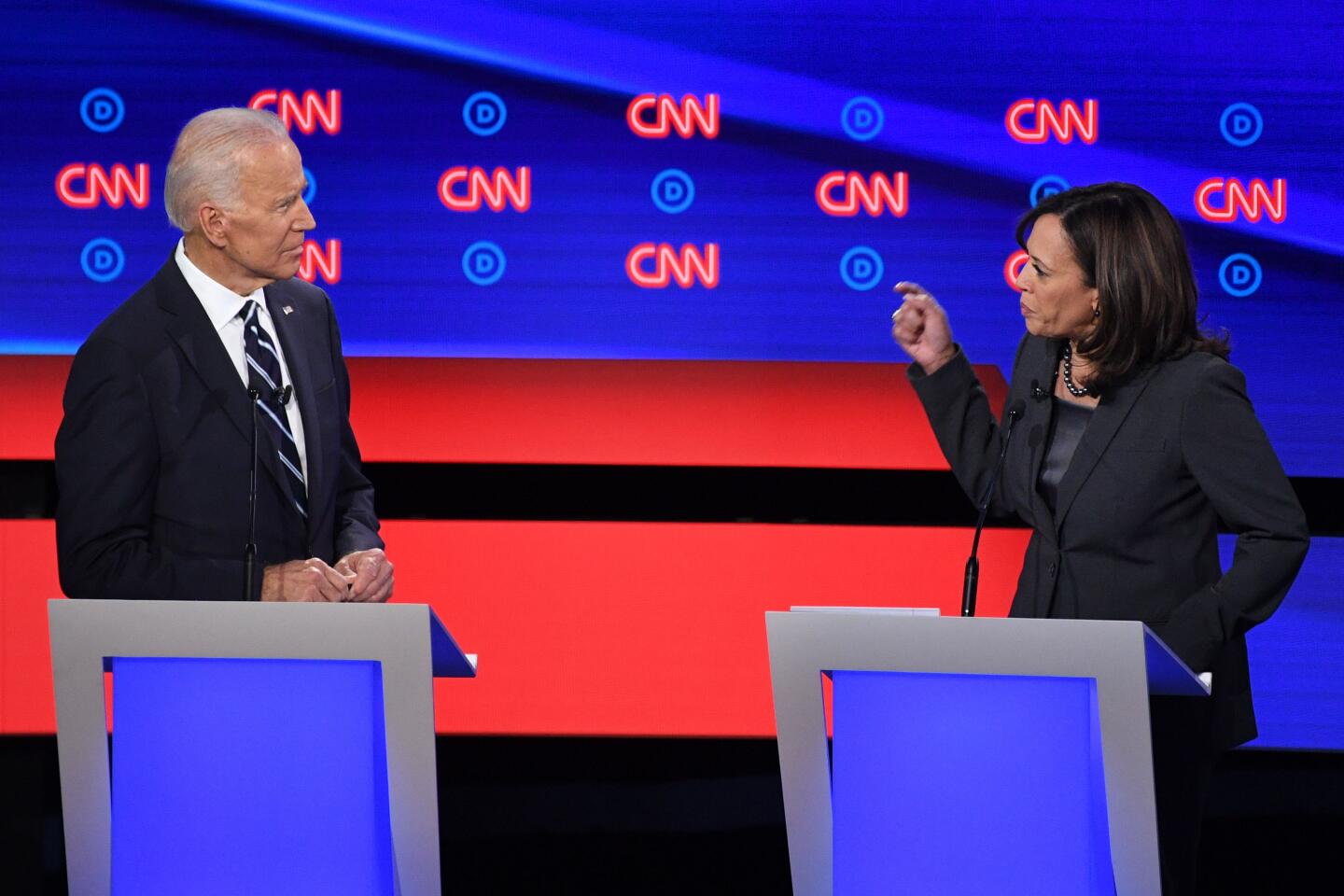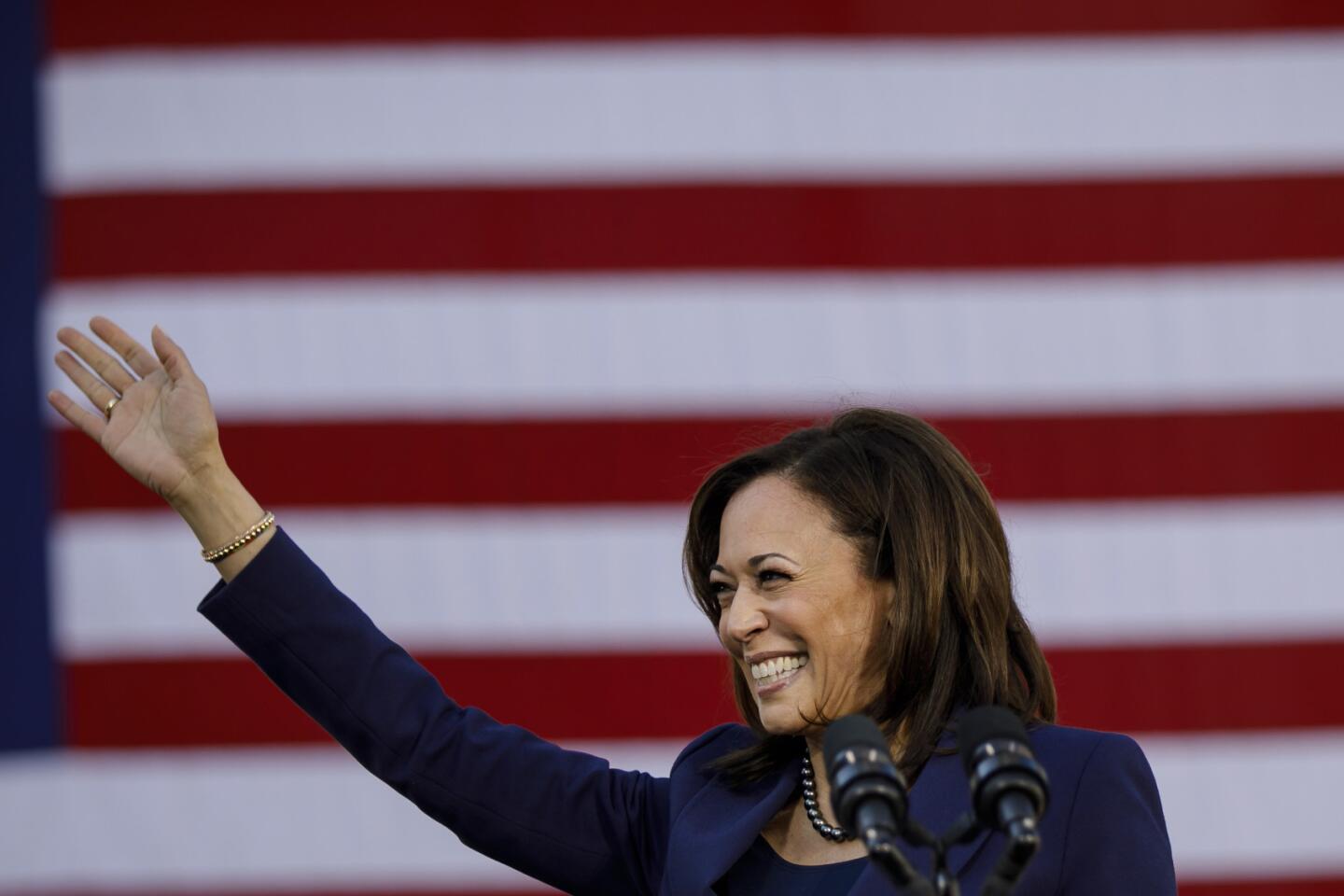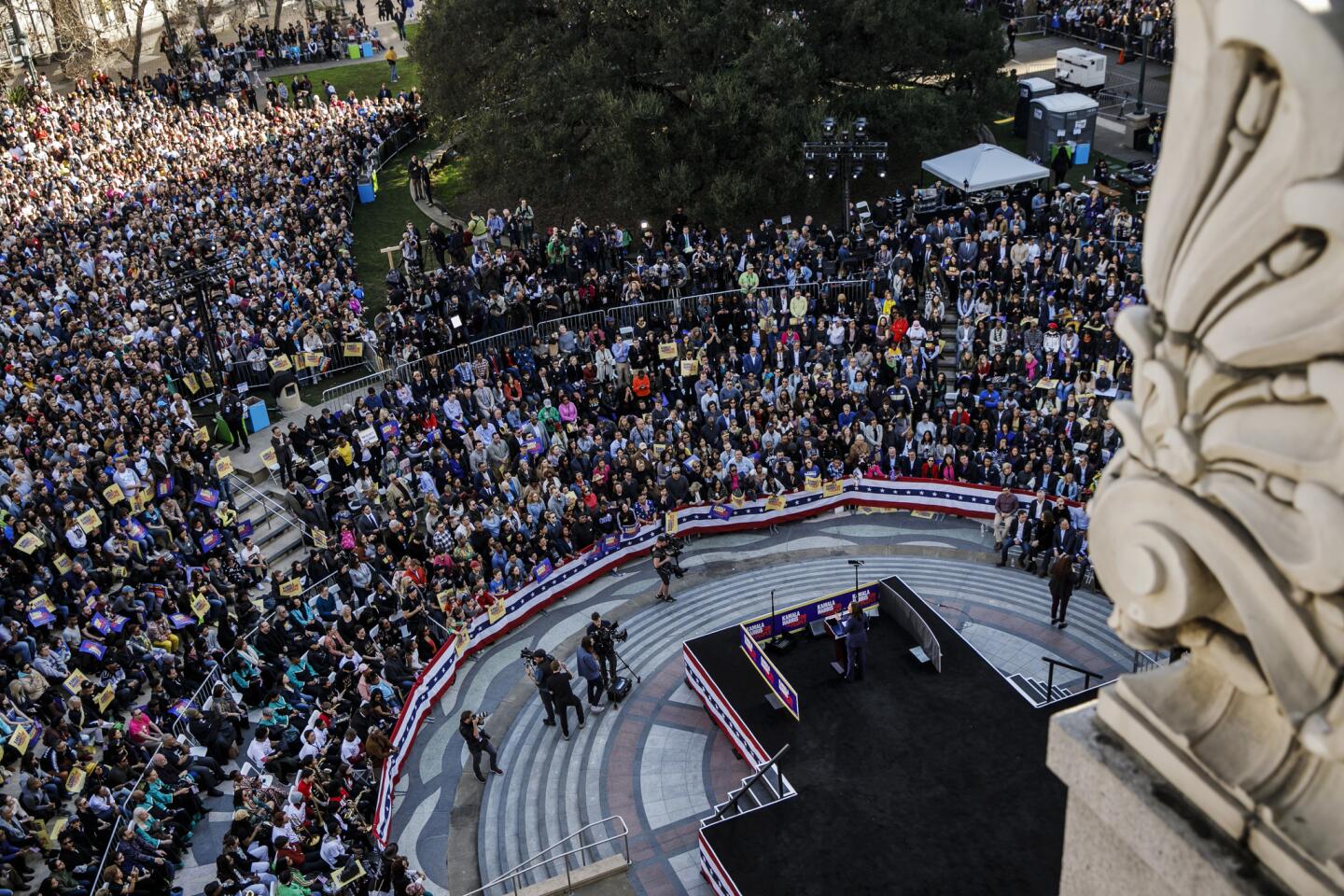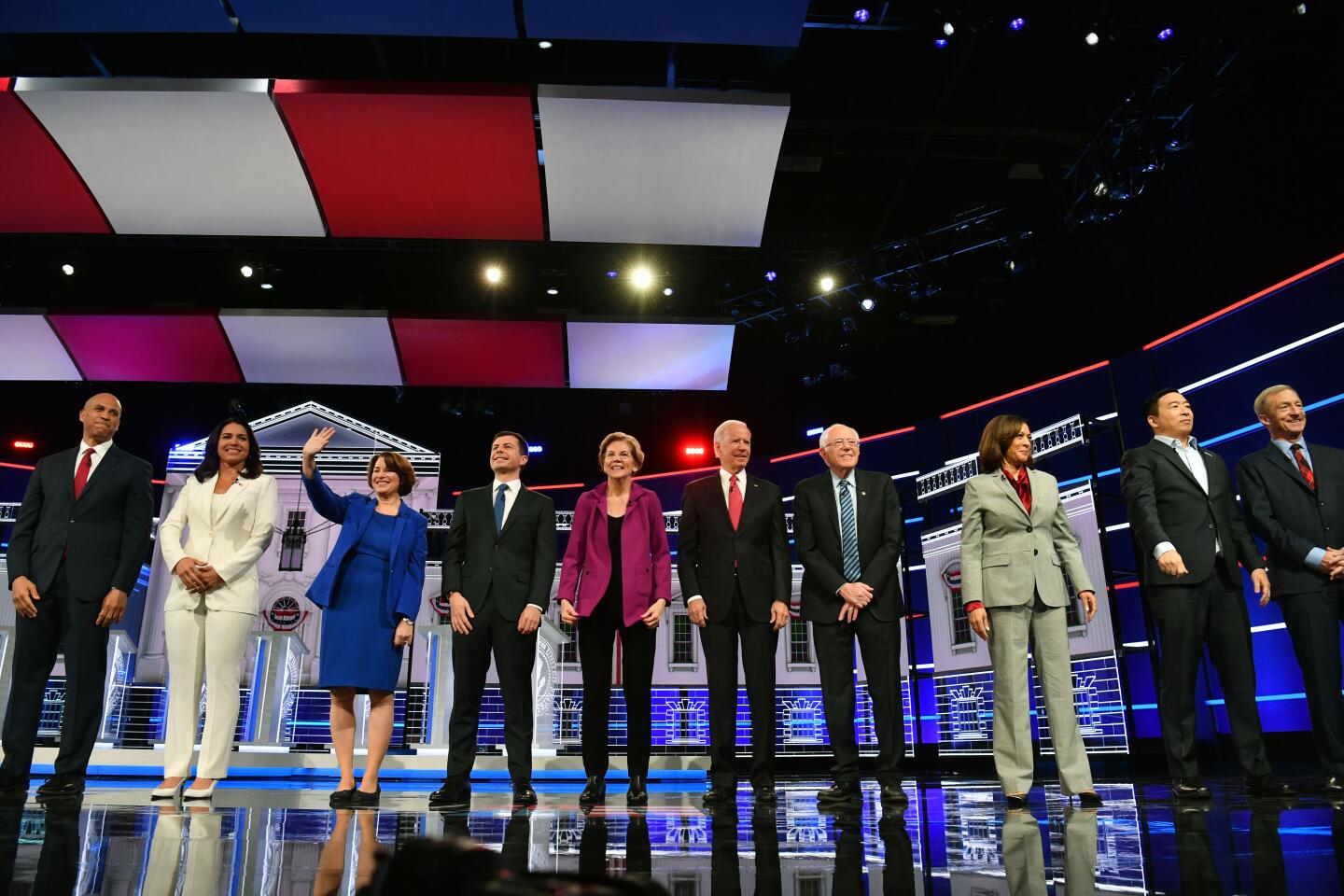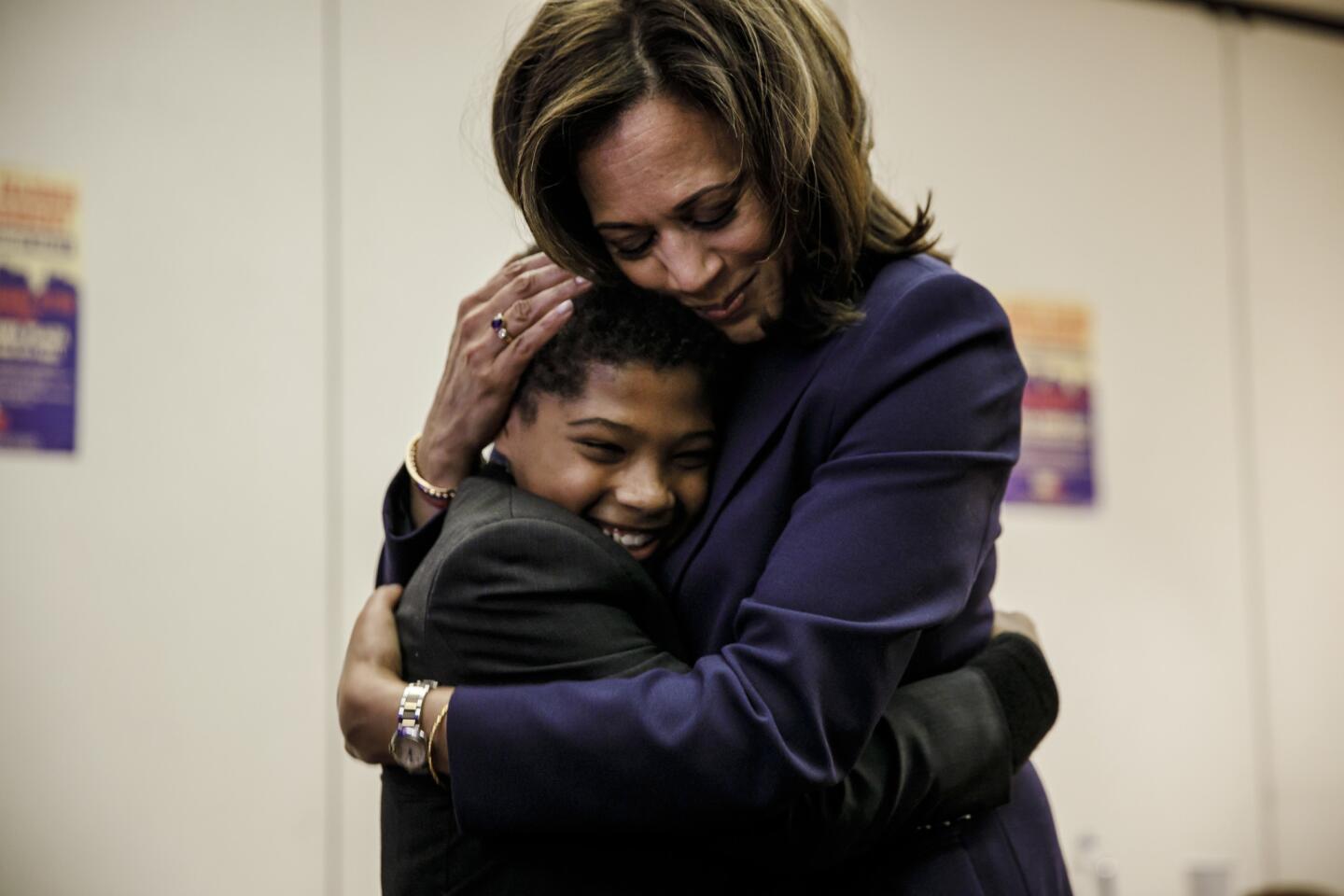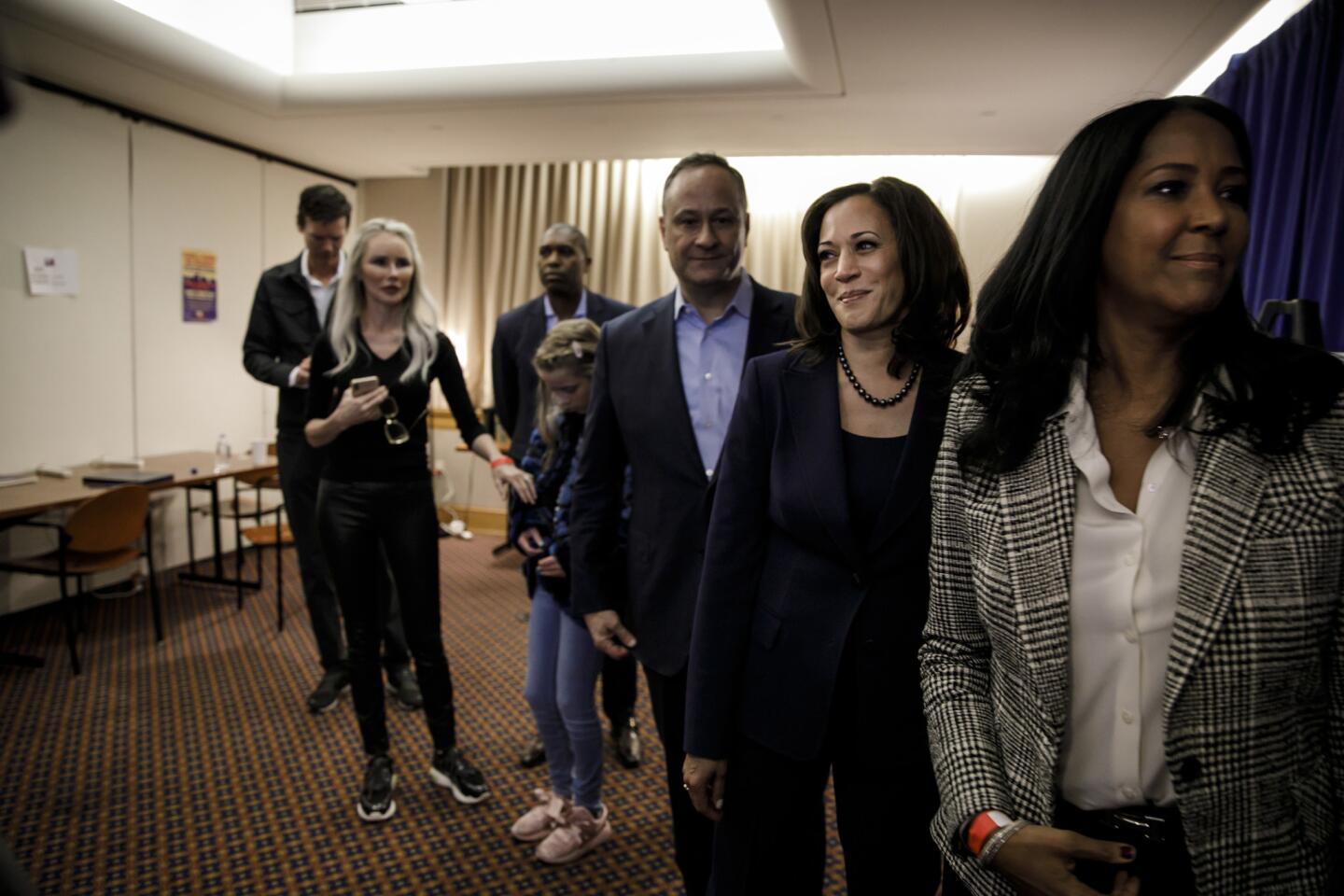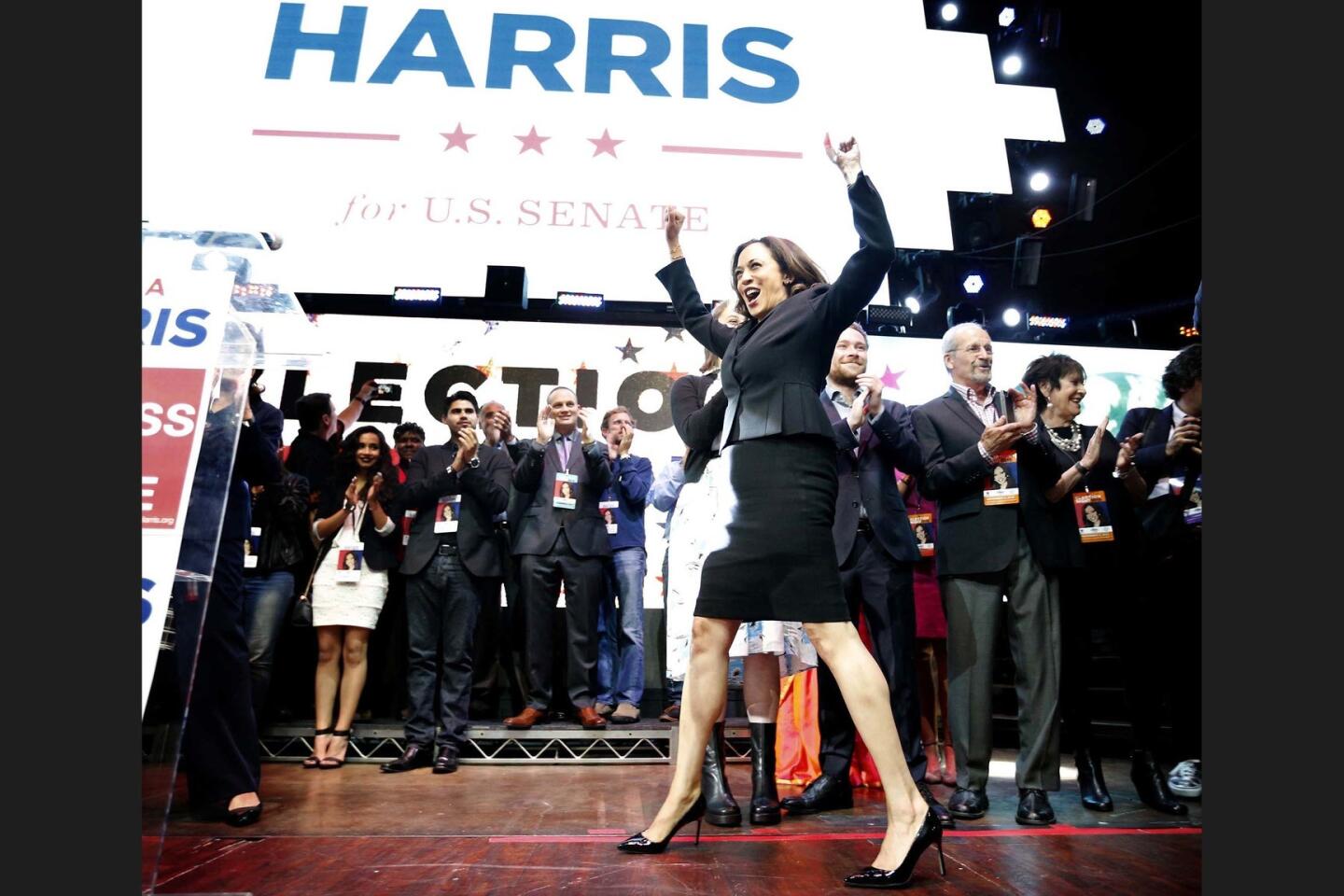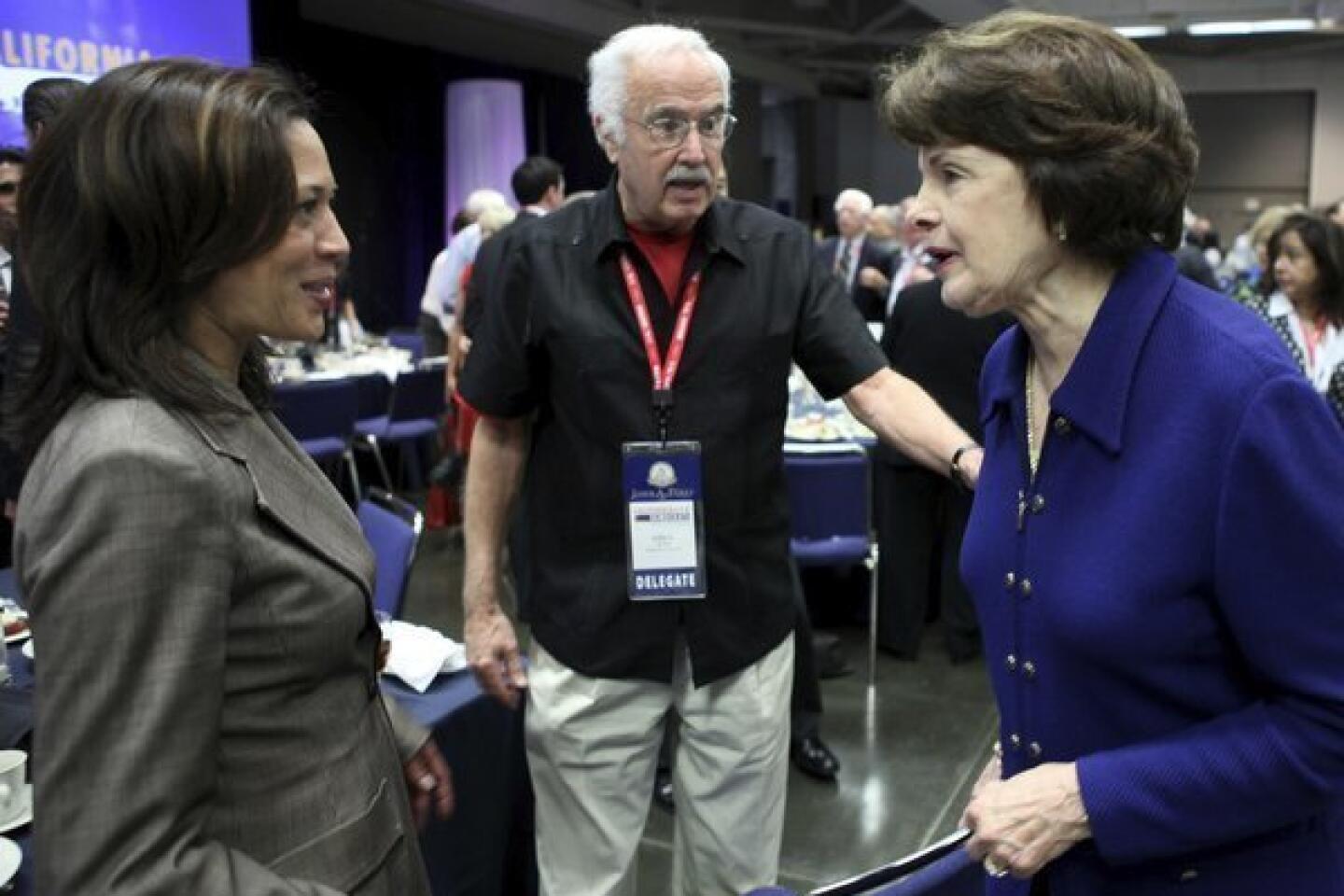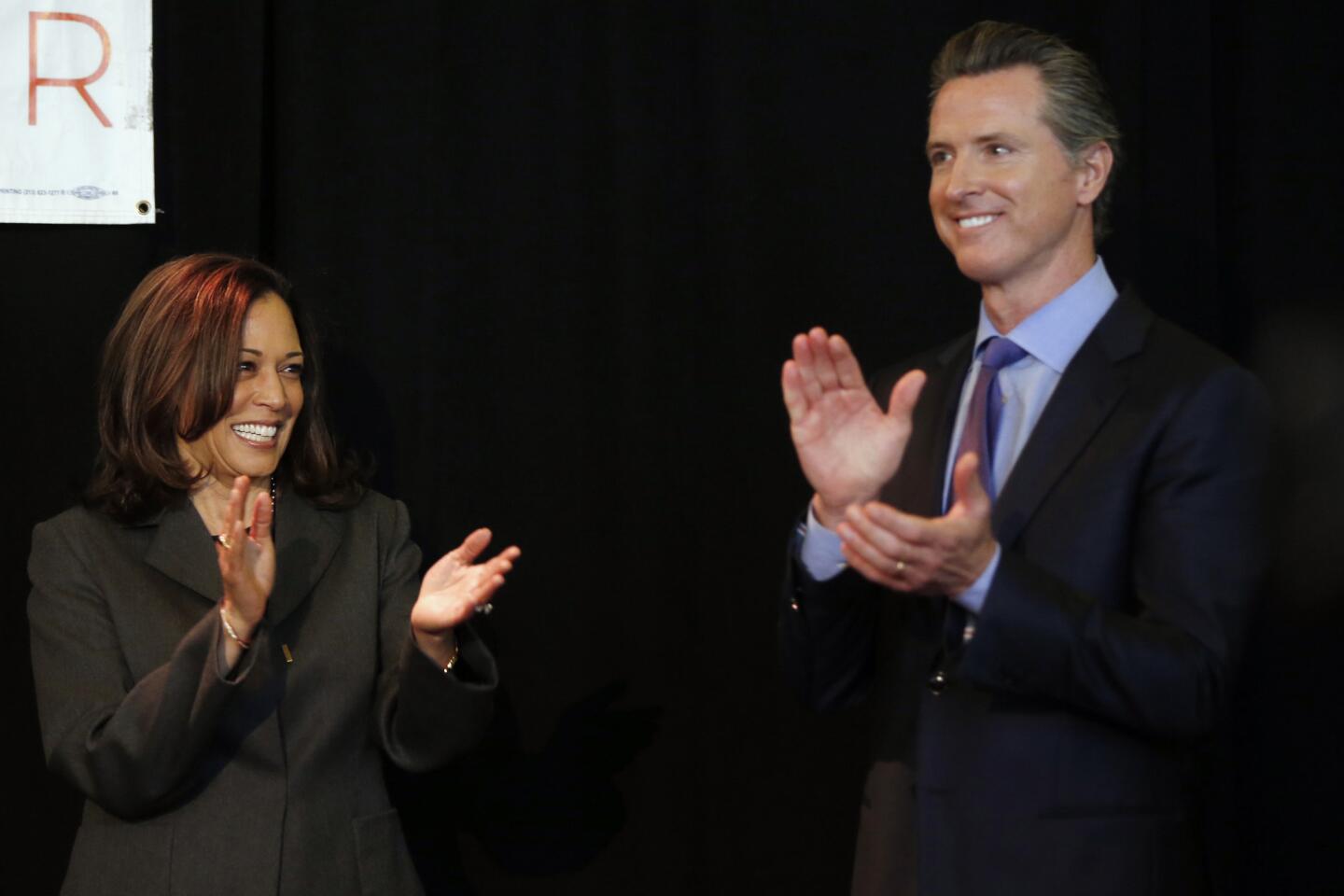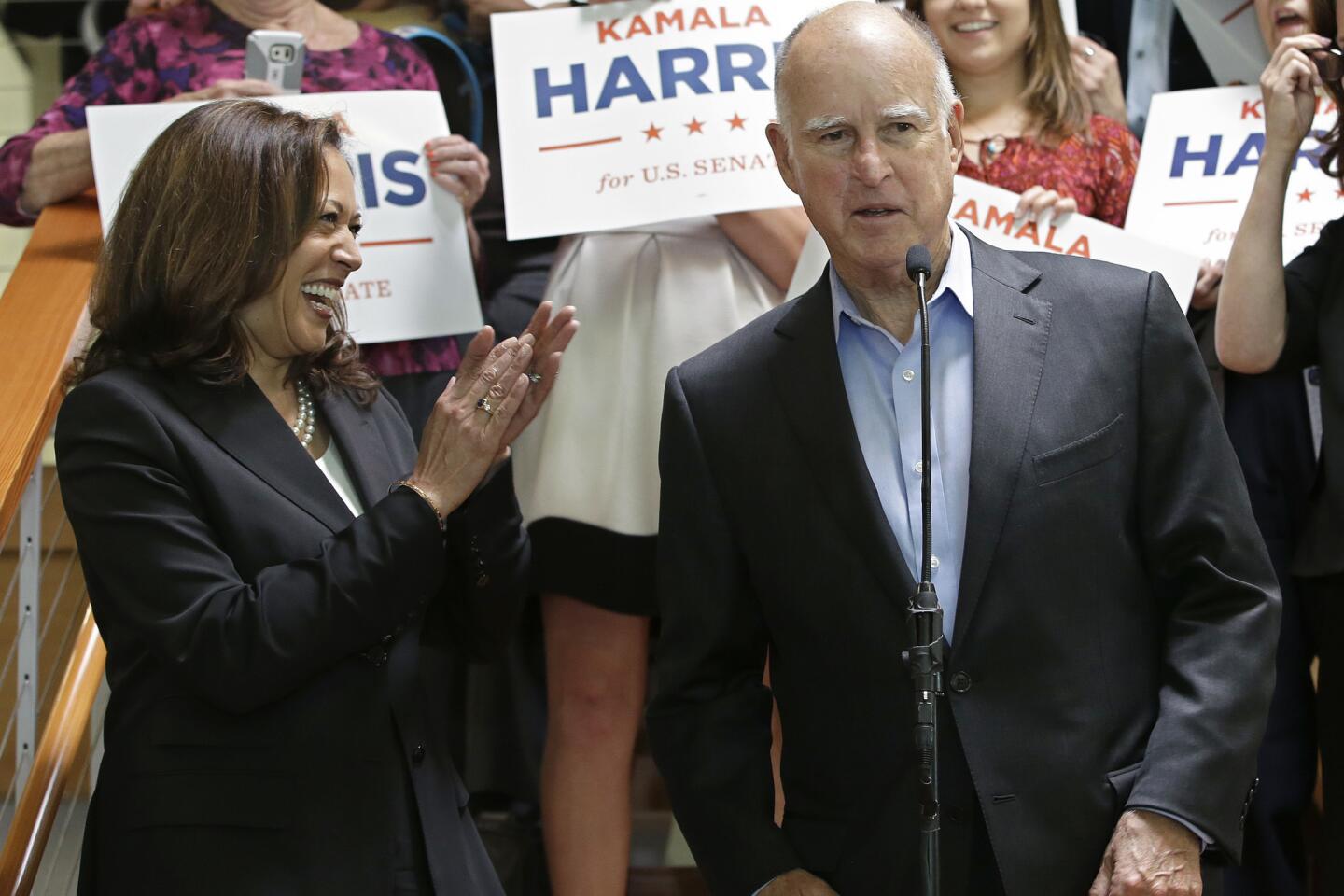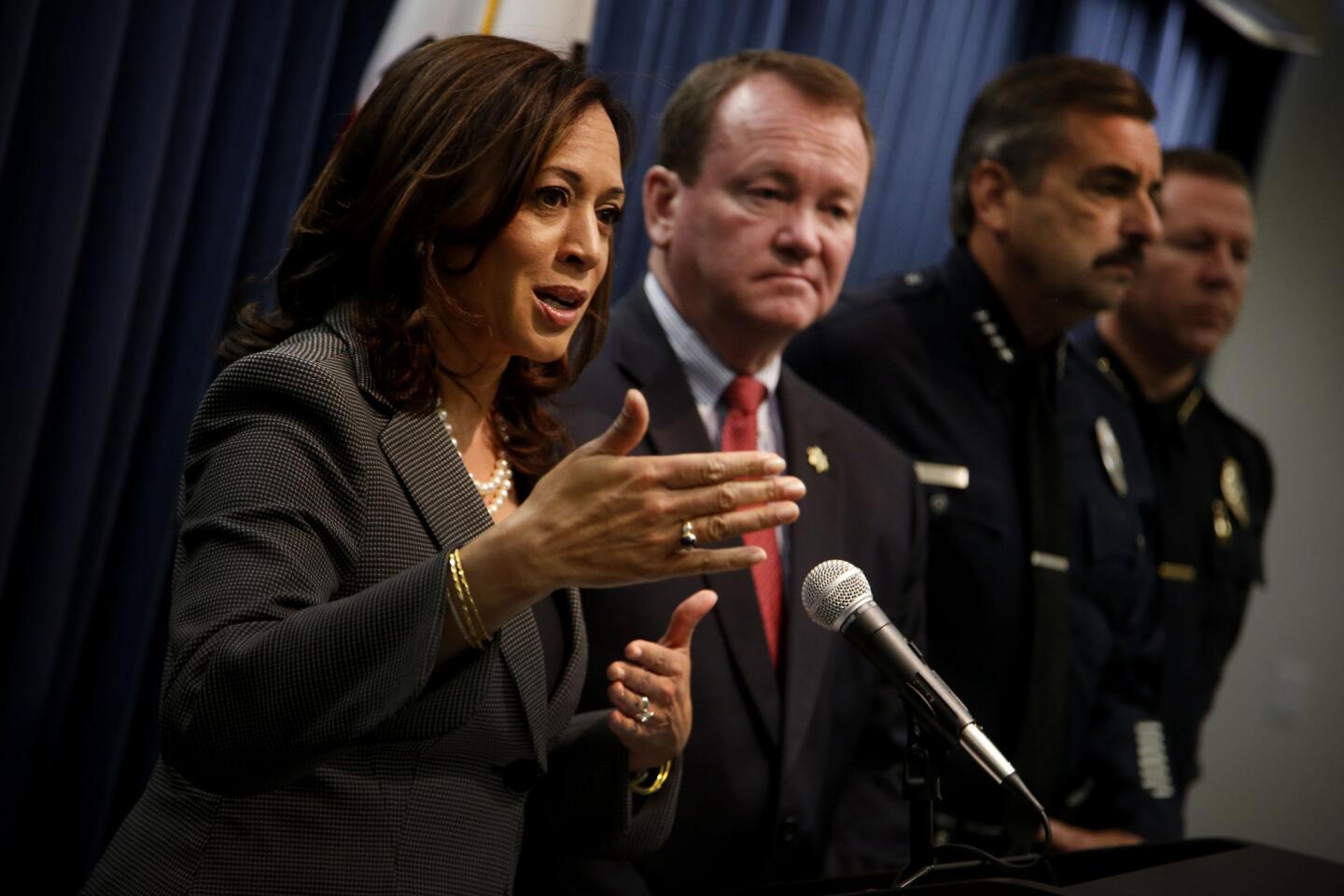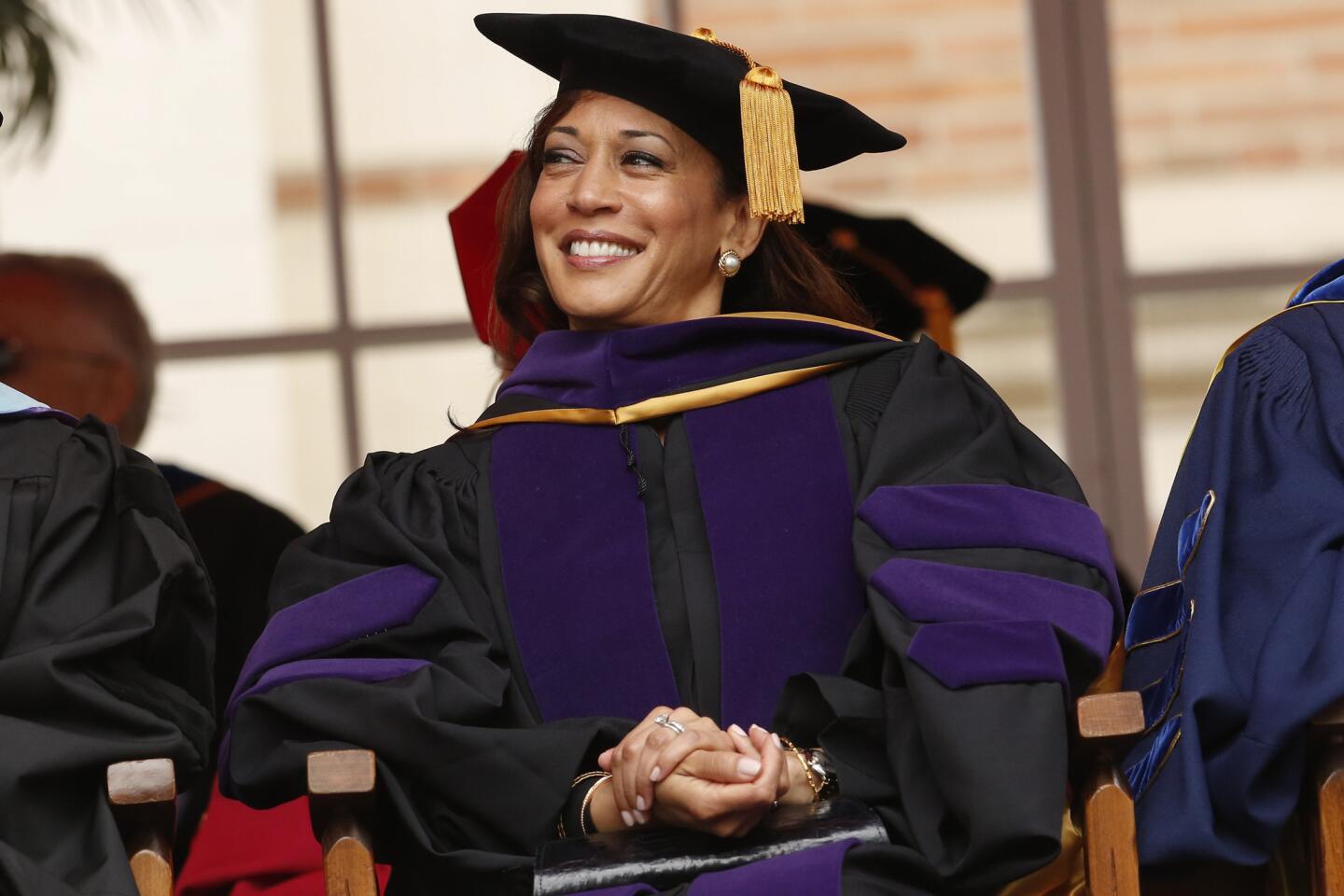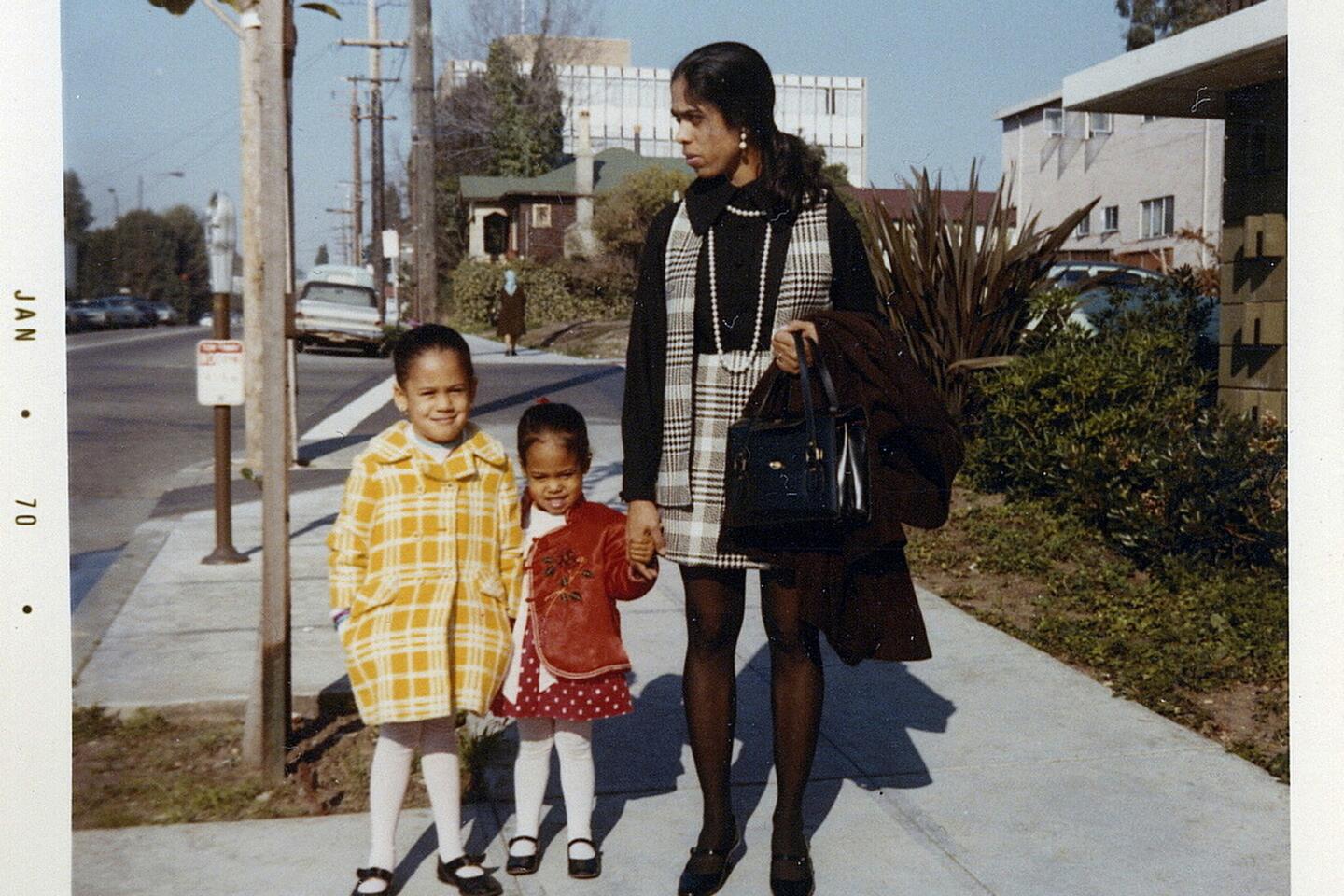Kamala Harris emerges as a 2020 front-runner, but is that a good thing?
- Share via
Reporting from Oakland — Even before Kamala Harris’ campaign launch in Oakland on Sunday, her nascent 2020 bid had already hit full gallop — a star turn on “Good Morning America,” a self-reported seven-figure fundraising milestone, a friendly reception in a key primary state.
With that fast start, Harris has stoked a perception that she is not just an elite candidate, but among the Democratic front-runners — a designation that is loaded with both upside and danger in this very early stage of presidential jockeying.
The California senator and her campaign strategists aren’t yet declaring her the favorite. But her days-long debut, crafted for maximum impact, showed a desire to make a big and early splash.
“This is what you do,” said Mike Murphy, a Republican strategist with extensive experience in candidate rollouts. “You announce, and then you try to create measures of success, and then you get the press to write you’re the front-runner, and then you use the clips to raise more money.”
Harris’ political celebrity was evident at Sunday’s sun-kissed rally in downtown Oakland, where she was born and began her career as a public prosecutor. She drew an impressive crowd that police estimated at more than 20,000, as well as live nationwide coverage on several cable TV networks.
She used her 35 minutes of remarks to lay out a liberal agenda calling for expanded access to healthcare, preschool and college education and, above all, to inveigh against President Trump and the direction he has led the country.
“We are at an inflection point in the history of our world,” Harris said, overlooking a multiethnic sea of listeners from the steps of Oakland’s City Hall. “We are here because the American dream and our American democracy are under attack and on the line like never before.”
2020 candidates: Who’s in and who’s on the fence? »
Of course, front-runner status is a hazy thing at this moment, more than a year before any votes are cast. And Harris, 54, has consistently lagged in national surveys behind former Vice President Joe Biden and independent Vermont Sen. Bernie Sanders, both of whom are weighing their own White House bids.
Anita Dunn, a former political advisor to President Obama, said that while she wouldn’t consider any one candidate a front-runner at this point, Harris in the last week proved she belongs in the top tier.
“She really took a large step toward demonstrating — not telling people, but demonstrating to people — she’s a candidate who can go the distance,” Dunn said, citing the senator’s seasoned campaign team and well-executed start.
Others went further, tabbing Harris — who is barely two years into her freshman Senate term — as the Democrat to beat. “One could make a compelling argument that she is the front-runner out of the gate,” Dan Pfeiffer, Obama’s former communications director, said on Twitter.
The sentiment was echoed by Rachel Maddow, whose evening show on MSNBC has become a must-visit for Democratic hopefuls. Harris joined Maddow for an extended interview Wednesday night.
California’s big, but South Carolina may be key in Kamala Harris’ presidential run »
“I will just say honestly, I think there is a good chance that you are going to win the nomination,” Maddow gushed to the senator. “You in a general election fight against Donald Trump would be the funnest thing in the world to cover.”
Harris broke into a broad smile.
Adding to her perceived strengths is Harris’ strong initial fundraising. Her campaign said it raised $1.5 million in the first 24 hours, from about 38,000 donors — three-quarters of whom had never given to Harris before.
On Friday, she visited South Carolina, her first stop in an early primary state since formally entering the race, enjoying a warm reception at a gala for Alpha Kappa Alpha, the black sorority that Harris joined as a Howard University undergrad. The visit reflected a strategy that counts heavily on the support of African American women, a crucial constituency in the Democratic nominating fight.
Though Harris is a first-time presidential candidate, her moves showed no lack of political sophistication.

Sen. Kamala Harris (D-Calif.) begins her official presidential campaign Sunday in her hometown of Oakland.
By announcing early and moving aggressively, her rollout was an attempt to steal a march in a crowded field with several layers of competition: for the support of women and African Americans, but also voters hungry for generational change and partisans eager for someone to wage unreserved war on Trump and his administration.
In doing so, Harris could make it tougher for others to elbow their way past.
Perceived front-runners can benefit from a virtuous cycle in which their presumed strength and momentum attract favorable notice and increased publicity, which in turn lead to greater voter interest, more campaign contributions and a bandwagon effect as party leaders eagerly attach themselves to seeming winners.
But the front-runner label can add the burden of high expectations.
“Now that you’ve gone out and told everybody you’re Superman or Superwoman, you have to start picking up locomotives,” said Murphy, the veteran GOP strategist.
Kamala Harris lays out the core ideals of her 2020 campaign in her new book, ‘The Truths We Hold’ »
The attention also brings heightened scrutiny. Harris’ record as a Bay Area prosecutor and California attorney general has already produced a backlash among some Democrats who accuse her of being overly aggressive and contributing to the mass incarceration of young black men.
History suggests a dynamic in which front-runners assume the mantle of establishment favorite, opening them to a challenge as Democrats grow disenchanted, or bored, and welcome an insurgent running against the status quo.
Walter Mondale, John F. Kerry and Hillary Clinton all weathered serious upstart opposition, from Gary Hart, Howard Dean and Sanders, respectively. Each hung on to eventually win the Democratic nomination. But the challenge exacted a serious toll on their image and candidacies.
Sometimes front-runners stumble so badly that they are overtaken and never catch up, as happened, most recently, in 2008, when Clinton fell to longshot Obama.
The question for Harris, Dunn said, is how she builds on her campaign’s strong beginning. Her strategists are prepared for momentum to ebb and flow as the race progresses. The high-octane start meant to convey energy around her candidacy will likely downshift, pacing Harris to compete in a presidential marathon, as it is inevitably described, as opposed to a sprint.
“The overture to the show was fabulous,” Dunn said. “Now what are we going to see in the first act?”
More to Read
Get the L.A. Times Politics newsletter
Deeply reported insights into legislation, politics and policy from Sacramento, Washington and beyond. In your inbox twice per week.
You may occasionally receive promotional content from the Los Angeles Times.
